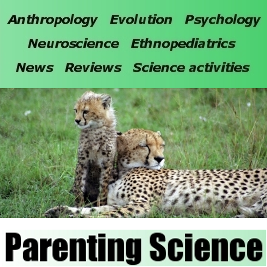
Articles
-
2 weeks ago |
parentingscience.com | Gwen Dewar
Friends and fellow families from every walk of life and political persuasion: Please join us on June 14th in a peaceful demonstration for democracy. There are many planned in places throughout the United States. Chances are there is one near you. We stand together to defend rule of law, due process, and freedom of speech. We will let our neighbors know that none of us are truly alone. We will let politicians and media outlets know that our country belongs to us — the people.
-
2 months ago |
parentingscience.com | Gwen Dewar
Families unite! We need to speak up to protect our children! We have strength in numbers!On April 5th, find a “Hand’s Off” rally near you, and lend your voice to express the will of the people. Tell those in power that we aren’t going to let extremists, billionaires, and corruption take away our democratic rights and economic livelihoods.
-
Dec 16, 2024 |
parentingscience.com | Gwen Dewar
Who should decide whether a child gets access to life-saving care? Or if the child’s family should receive a crippling financial blow – one that might permanently and negatively alter the course of their lives? In traditional cultures throughout the world, folks share similar values about this: Some things should not be determined by the whims of profiteers. You’ve rushed your child to the local hospital. The doctors determine that your child has a severe, or even life-threatening condition.
-
Dec 8, 2024 |
parentingscience.com | Gwen Dewar
In many cultures, people believe in an afterlife, where “personhood” continues to exist in the absence of a physical body. Does this spiritual stance reflect an innate bias of human psychology? To find out, researchers have examined whether children believe in souls. Imagine your body vanishes in a puff of smoke. You’re dead, or maybe you’ve been transformed, magically, into a rock or a tree. Would you feel sad about it?
-
Nov 17, 2024 |
parentingscience.com | Gwen Dewar
Peer pressure and social conformity starts long before adolescence. When faced with a choice between telling the truth and backing a popular falsehood, even 4-year-old children will buckle. Yet kids also possess the ability to question — and even reject — majority opinion. What can we do to encourage children to think for themselves? Image this situation. You and three other people are sitting in adjacent booths, and you’ve each got a copy of the same book. You open to the first page.
Try JournoFinder For Free
Search and contact over 1M+ journalist profiles, browse 100M+ articles, and unlock powerful PR tools.
Start Your 7-Day Free Trial →X (formerly Twitter)
- Followers
- 418
- Tweets
- 389
- DMs Open
- No